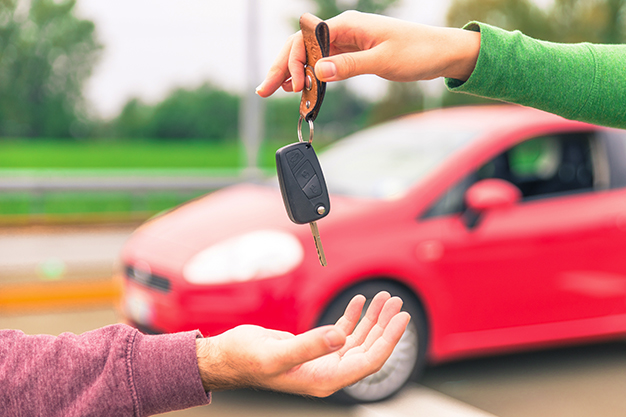How to sell your car privately
Home
>
Guides
>
Guide to selling your car privately
Generally speaking, arranging a private sale will get you the best price for your car. The key word here though is arranging.
Organising a private sale usually requires considerable time and effort on your part. So here are some of the points you’ll need to think about.
Preparing your car for sale
You’re likely to be competing against many other similar cars, each hoping to catch the eye of a buyer. This means it’s crucial your car looks as good as it can.
Cleanliness counts. If you haven’t bothered to make the car look presentable you can expect a sizeable sum to be knocked off the sale value.
Consider paying for a good ‘car cleaning and valeting’ service. A shiny finish will really boost how your car looks (especially in pictures).
And paying for a professional job will generally increase the car’s value more than the job costs.
Check the bodywork. Use T-Cut on light scratches. Small dents can usually be repaired at only a slight expense.
And deal with minor mechanical faults. Buyers are also reassured when there’s a new MOT. If yours is about to expire, getting a new one is a good bet.
Where and how to advertise
Some of the most popular ways to advertise:
- FOR SALE signs - inside your car
- FOR SALE cards - local shops
- Car auction sites - e.g. eBay and eBid
- Classified ads in local newspapers
- Car-selling websites - e.g AutoTrader and Gumtree
When advertising a car for sales your ad (by law) needs to describe the car accurately and include:
- Colour
- Mileage
- Condition
- Your contact details
- List of equipment/taxes
- Full service history (or not)
- The exact make and model
- Year of manufacture and registration indetifier
Where to get car valuations
It’s crucial you know the ‘market’ value of your vehicle. You can find this out easily by using sites such as:
- Motors.co.uk
- WeWantAnyCar.com
- Parkers.co.uk
Car valuation services are particularly useful in assessing how damage on your car may have an effect on its value. Also, check similar cars in the classified ads in local papers.
Basic negotiation advice
Once you know the value of your car, build in a little wiggle room for negotiating. Not everyone enjoys haggling, so here are a few tips to prevent you feeling intimidated:
- Create urgency. Let potential buyers know that others are interested
- Be honest about any damage. But don’t go pointing out faults
- If you’re not in a hurry to sell, be prepared to turn down offers
- It’s ok to be flexible, but don’t be too eager to reduce your price
- If a buyer says “I like the car, but…” counter it by asking “How much would you be willing to pay?”
- Be firm, but not unreasonable. Have a lowest price in mind but don’t say it to potential buyers
- If the buyer identifies a reasonable problem, be prepared to drop the price. But if you feel they’re trying it on, just walk away
Safe methods of payment
Once you’ve agreed the sale, you need to agree on the payment method.
CASH – Be sure to count the money. Have a friend or family member with you. Or perhaps arrange to meet the buyer at your bank.
That way you can pay the money in immediately and the cashier will check the banknotes.
IMMEDIATE BANK TRANSFER (CHAPS) – Keep possession of your car until the funds have successfully transferred into your account.
Also, bear in mind that with this payment method you’ll have to reveal your bank account details to the buyer.
CHEQUE OR BANKER’S DRAFT – Request proof of the buyer’s name and address –a utility bill is usually sufficient (so you can follow them up if necessary).
If you have doubts about the buyer’s cheque, wait until your bank confirms it has cleared the full payment into your account before handing over the keys.
Most banks will show the cheque arriving in your account by the next working day, but this is not the same as the cheque actually being cleared. It could still bounce.
NON-REFUNDABLE DEPOSIT – If your buyer wants to buy the car but can’t pay immediately, ask for a non-refundable deposit.
The normal amount is £100. This will help cover your costs if they pull out and you have to re-advertise.
Spotting frauds
Selling your car privately carries the risk of being exposed to deception. Here are some recent scams to look-out for:
- Someone posing as a car exporter, who asks you to transfer ‘shipping fees’ to overseas ‘buyers’
- Phishing emails from so-called ‘car buying & selling’ websites requesting log-in and payment details for your credit/debit card
- Text messages expressing an interest in your vehicle – then charging a premium rate when you call or text
- People offering to purchase using PayPal or similar e-payment systems – the account might have been set-up using false credit card details
-
Someone offering to buy the car unseen and paying the full amount through PayPal.
You’re then notified you’ve been overpaid and are asked to return the difference using another online payment method.
As you do this, the fraudster arranges for their original PayPal transaction to be reversed and you lose the money you’ve ‘returned’

Back to Guides